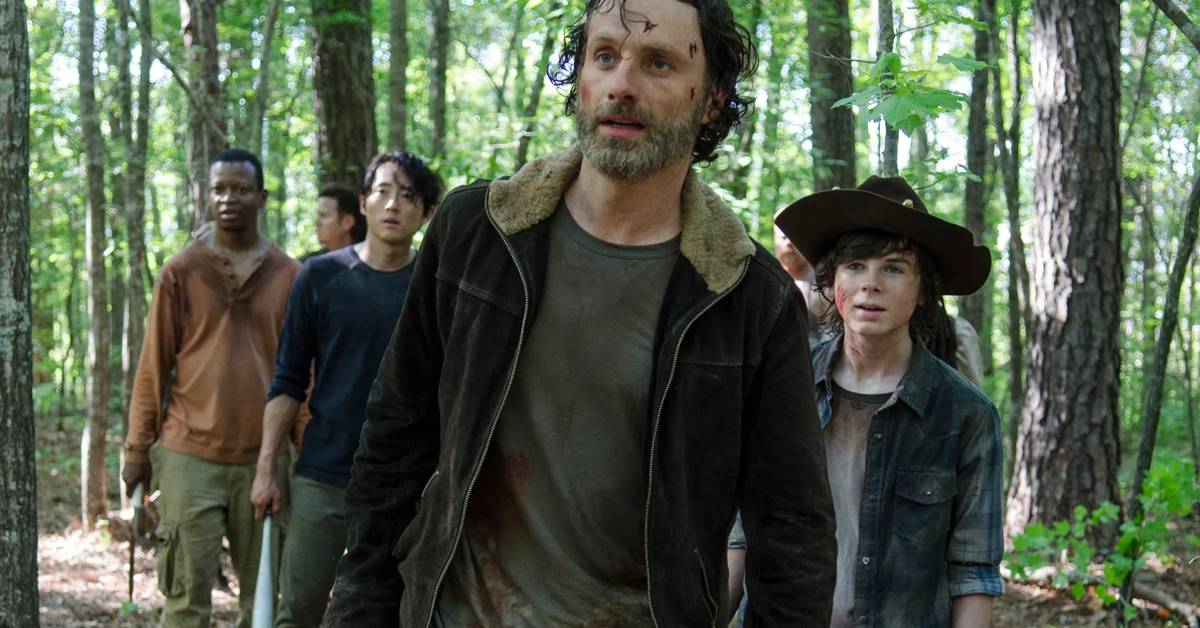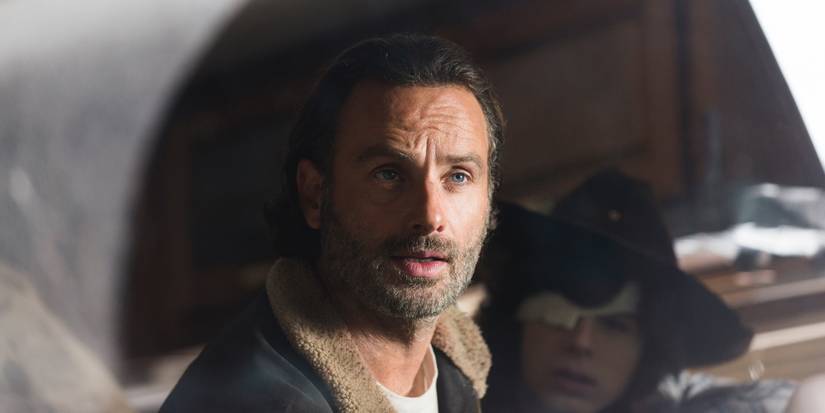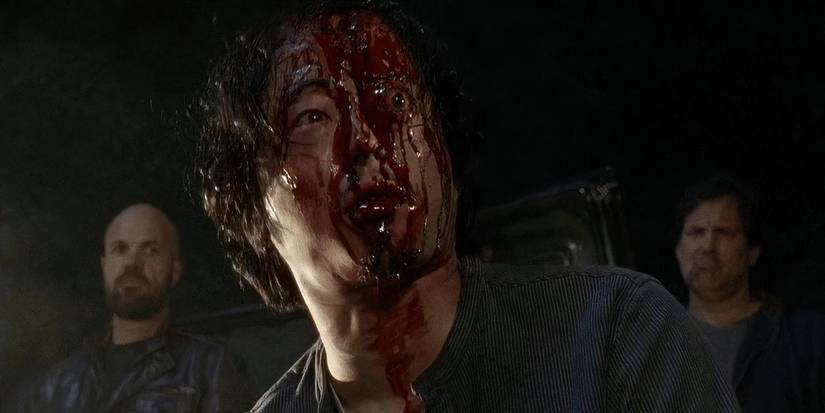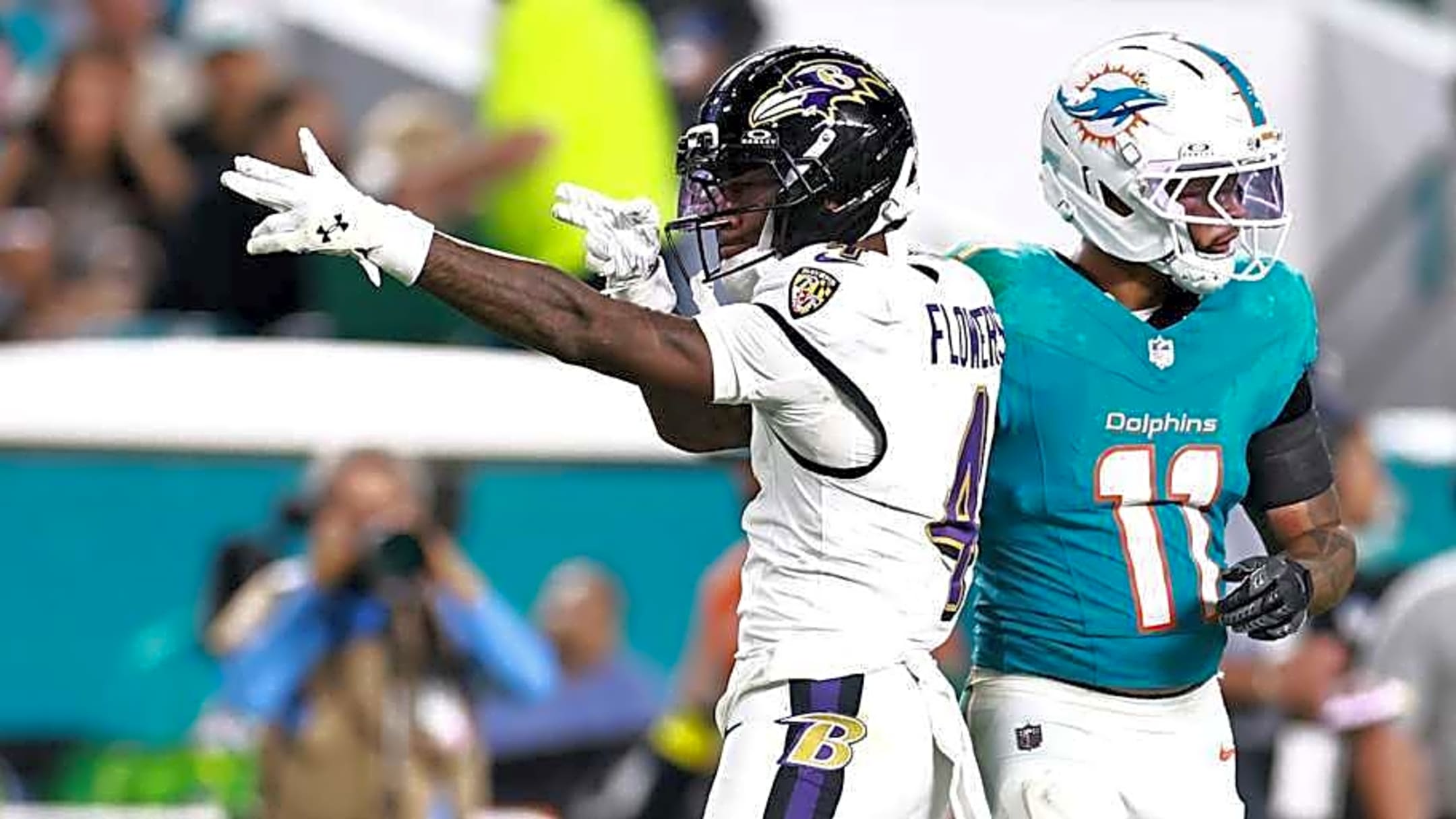If You Quit The Walking Dead Years Ago, This Was The Game-Changing Twist You Missed
Needless to say, The Walking Dead's lapsed fans have missed a huge number of shocks and surprises. The first details about how the zombie virus started. Daryl Dixon killing the Spanish royal family. Rick Grimes' reunion with Michonne. Strangely, however, none of those landmark moments compare to the massive, game-changing twist a lot of viewers won't know about.
Humanity Only Has 14 Years Left In The Walking Dead
During The Walking Dead: The Ones Who Live (the spinoff sequel based around Rick and Michonne), Andrew Lincoln's character was discovered within a militaristic community called the Civic Republic in Philadelphia. Naturally, Rick had risen to become a respected leader within the CRM, the Civic Republic Military.
For those who ducked out of The Walking Dead early, the CRM was the group behind the mysterious helicopters and "A" and "B" messages during the main show. They were also secretly working with Jadis' Scavengers.
When Rick attained the full trust of CRM leader Major General Beale, he was given the "Echelon Briefing" - secret information reserved for only the highest-ranking officers. The briefing's most important detail? That
It's a rather bleak twist that completely turns The Walking Dead on its head, proving that, unless a more permanent solution to the outbreak can be found, there isn't even a "happily ever after" within the walls of Alexandria and the Commonwealth.
Will The Walking Dead Ever Address The 14-Year Problem?
The Walking Dead is currently running two spinoffs: Negan and Maggie's Dead City and Daryl and Carol's Daryl Dixon. Both are quite far removed, geographically and narratively, from the main story, so aren't likely to tackle the 14-year problem revealed to Rick during the Echelon Briefing.
If the issue does get addressed, it will be in either The One Who Live season 2 or a potential The Walking Dead crossover - two projects that have been mentioned during interviews as possibilities, but never confirmed as actually happening.
Rick's only real course of action is finding a cure for the zombie virus, and this topic was broached during another spinoff many fans missed, World Beyond. The second season revealed the team of French scientists responsible for the outbreak, and also teased that some of those scientists may have been visiting the U.S. when the apocalypse started. Elsewhere,
If Rick Grimes hopes to literally save the world before The Walking Dead
This Walking Dead Episode Was The Exact Moment The Show Fell Off
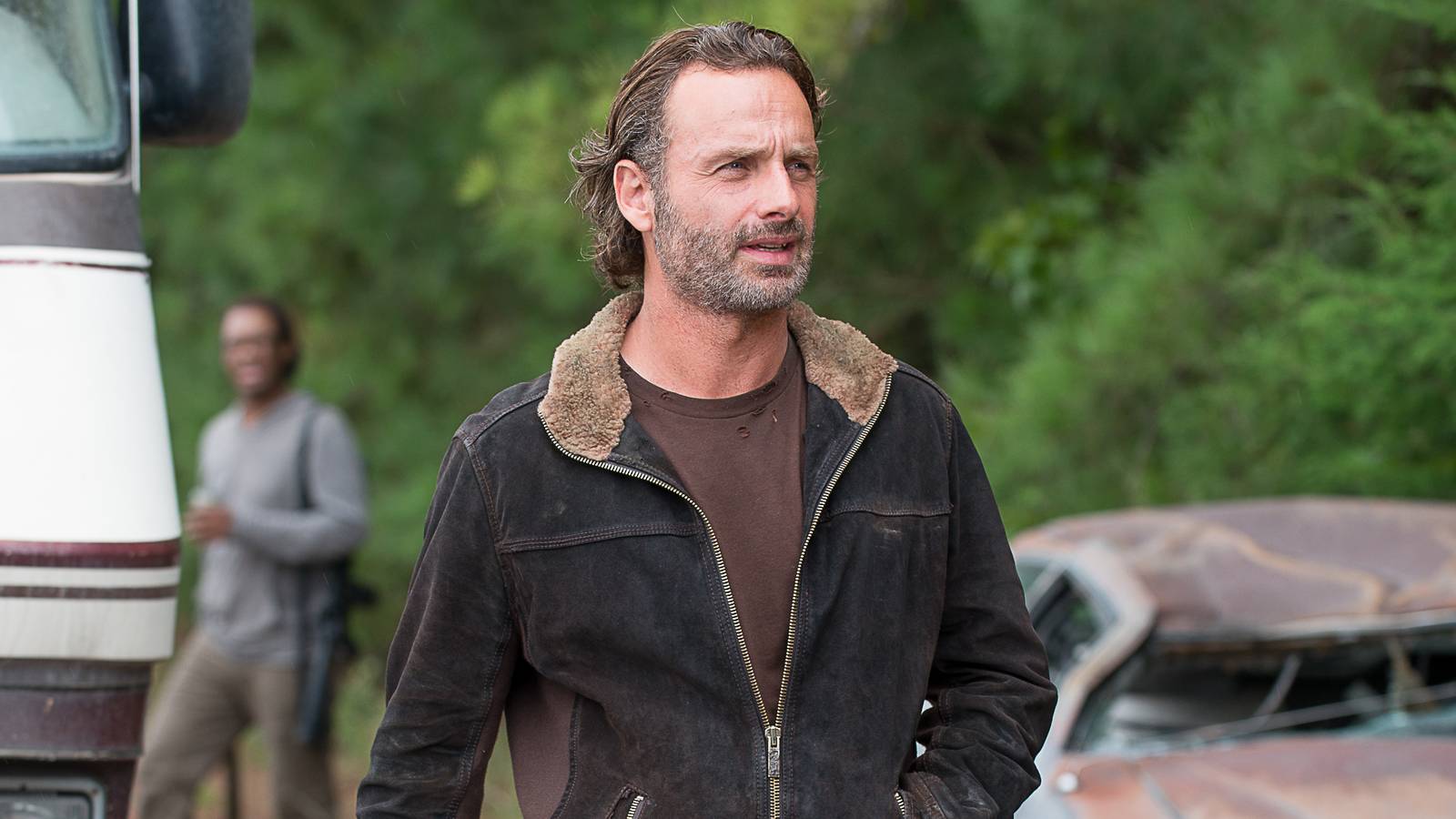
The Walking Dead’s status as an all-time great survival series is beyond reproach, but it’s also widely accepted that the show fell off big time during its later seasons. While it picked up a little during the home straight, a string of episodes between seasons 6 and 8 made many longtime fans switch off.

While there are several episodes of The Walking Dead that made viewers quit the series, if we look closer we can pinpoint a single moment which began its downward trajectory. This episode definitively turned the show’s central protagonist Rick Grimes into a different character, who was less forgivable and harder to identify with.
Once Rick crossed the Rubicon in season 6 episode 12, there was no turning back, and we’d never think of his entire group the same way again. While it’d be a little harsh to place it in the category of a terrible episode from a once-great show, “Not Tomorrow Yet” burst the dam and brought
The Walking Dead’s Season 6 Episode “Not Tomorrow Yet” Was The Moment The Show Fell Off
Deep into season 6, the series reached a point of no return, pushing our sympathy for its most important character beyond limits we were willing to tolerate. While some viewers may point to the earlier “Dumpstergate” episodes or season 7’s premiere as the beginning of the show’s decline,
But the fake-out of Glenn Rhee’s death and the moment of his eventual demise didn’t fundamentally alter the trajectory of the show, as infuriating and upsetting as both of these plot points were. On the other hand, the way Rick Grimes behaved in this episode was a betrayal of his essential characteristics.
As Andy from the Hilltop told him, “The Saviors, they’re scary, but those pricks got nothing on you.” Character development is, of course, critical to the success of any longrunning series. But developing your main character beyond recognition is a mistake you don’t come back from.
Rick’s Decision To Hunt The Saviors Crossed A Line The Show Couldn’t Come Back From
Andrew Lincoln’s best Rick Grimes performances in The Walking Dead generally portrayed the character as a true hero and inspirational leader, who earned our profound sympathies despite his flaws and occasionally disturbing actions. There was always a justification for whatever he did, and his most extreme measures were taken in direct retaliation for something worse.
That is, until “Not Tomorrow Yet”, when Rick decided to preemptively attack the Saviors, justifying his decision by telling his group, “This is how we eat.” Yet, nothing about this decision was prepared by preceding episodes. The group was eating well at the time thanks to their alliance with the Hilltop.
Morgan Jones proposed a less violent alternative that made more sense, but Rick laid down the law to the group, under the phony guise of a democratic discussion. More than anything he’d done before, this decision dehumanized him – a development that was reinforced by his general demeanor throughout the rest of the episode.
The Walking Dead Only Got Worse After This Episode
If “Not Tomorrow Yet” permanently robbed Rick Grimes of his humanity, then things only got worse for The Walking Dead from there. If Glenn Rhee’s miraculous survival following his apparent death at the hands of walkers was bad, then the end of the season 6 finale was beyond the pale.
The series continued to go downhill after this cliffhanger, which was resolved with the unspeakably brutal death of Glenn at the start of season 7. Glenn’s bizarre survival story in season 6 could have been forgiven, were it not for killing him off this way just a few episodes later.
After that bombshell, the rest of The Walking Dead season 7 was fraught with inconsistent writing, terribly misguided character twists, and offputting pacing problems. Season 8 wasn’t much better, and got rid of one of the show’s most beloved characters, Carl Grimes, in the worst possible manner. It may have improved in subsequent seasons, but the damage was already done.

